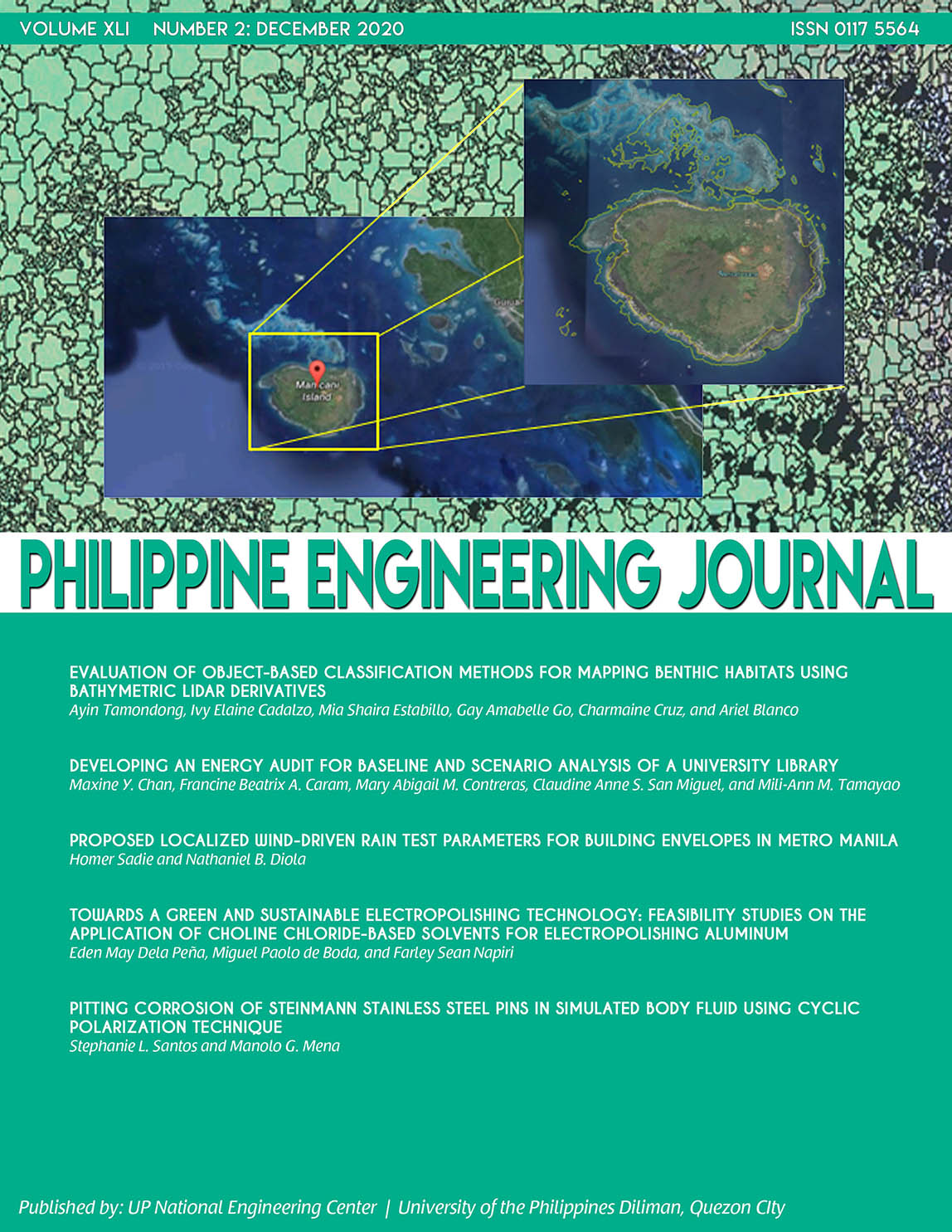Developing an Energy Audit for Baseline and Scenario Analysis of a University Library
Abstract
Abstract – In an academic university building, the library is one of the most used facilities as a place for studying and research. To further understand the energy use within the library, a baseline energy consumption profile was created by studying the different equipment in the facility as well as how often people would use them through an energy audit. Lighting and temperature of the area were also measured and compared to current standards for workplace productivity (200-500 lux and 22.5-25.5 °C). Given baseline estimates, recommendations were formulated to optimize electricity consumption within the library while reducing corresponding CO2 emissions and power costs. Recommendations are expected to result in a significant decrease in total monthly energy consumption of the university library, amounting to Php 54,507/month electricity cost savings and 2.59 ktCO2 in monthly CO2 emissions reduction.
Keywords—Power Consumption, Library, Energy Efficiency, Energy Audit


